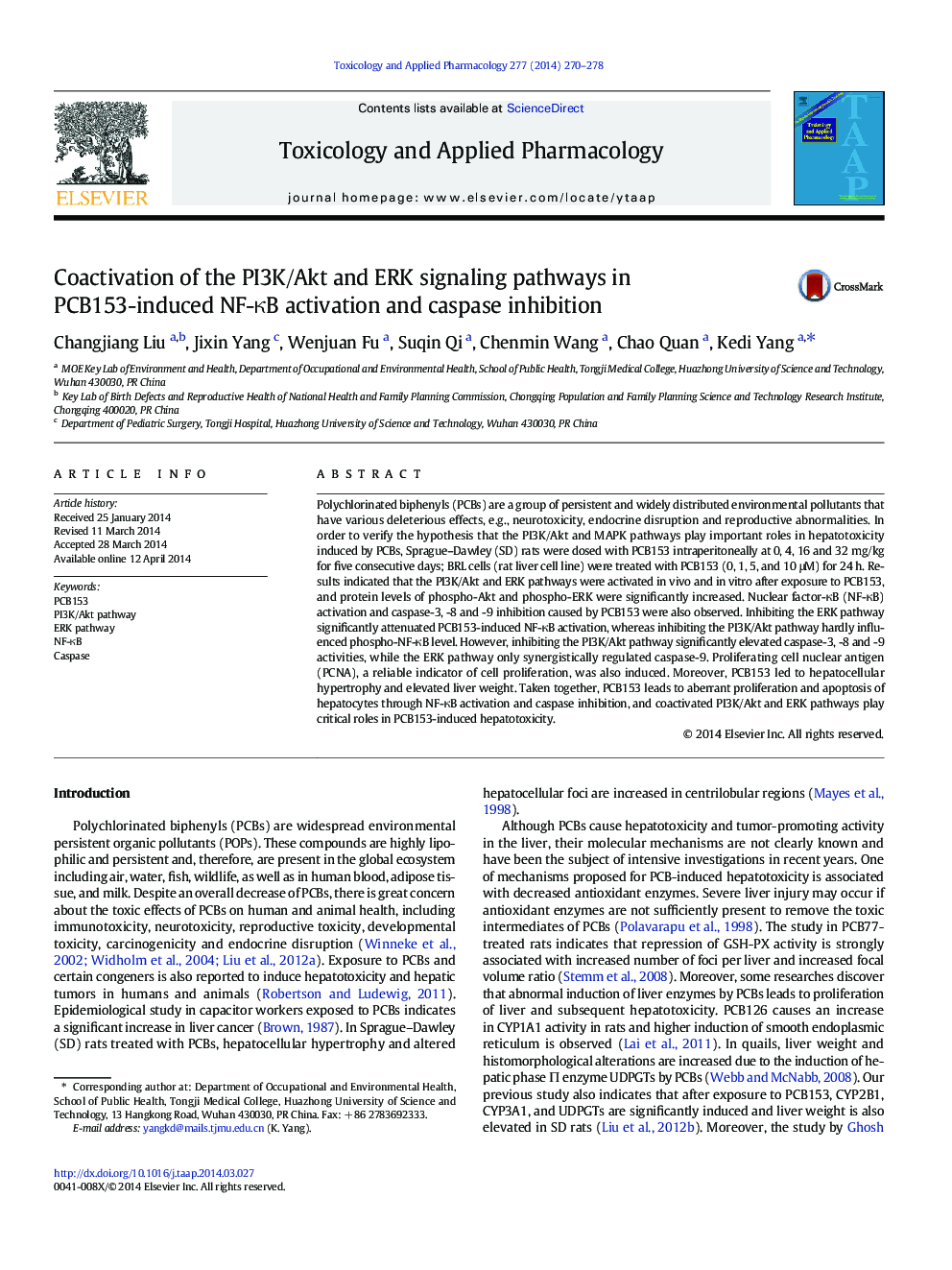| کد مقاله | کد نشریه | سال انتشار | مقاله انگلیسی | نسخه تمام متن |
|---|---|---|---|---|
| 2568668 | 1128472 | 2014 | 9 صفحه PDF | دانلود رایگان |

• PCB153 led to hepatotoxicity through NF-κB activation and caspase inhibition.
• The PI3K/Akt and ERK pathways were coactivated in vivo and in vitro by PCB153.
• The ERK pathway regulated levels of phospho-NF-κB and caspase-9.
• The PI3K/Akt pathway regulated levels of caspase-3, -8 and -9.
Polychlorinated biphenyls (PCBs) are a group of persistent and widely distributed environmental pollutants that have various deleterious effects, e.g., neurotoxicity, endocrine disruption and reproductive abnormalities. In order to verify the hypothesis that the PI3K/Akt and MAPK pathways play important roles in hepatotoxicity induced by PCBs, Sprague–Dawley (SD) rats were dosed with PCB153 intraperitoneally at 0, 4, 16 and 32 mg/kg for five consecutive days; BRL cells (rat liver cell line) were treated with PCB153 (0, 1, 5, and 10 μM) for 24 h. Results indicated that the PI3K/Akt and ERK pathways were activated in vivo and in vitro after exposure to PCB153, and protein levels of phospho-Akt and phospho-ERK were significantly increased. Nuclear factor-κB (NF-κB) activation and caspase-3, -8 and -9 inhibition caused by PCB153 were also observed. Inhibiting the ERK pathway significantly attenuated PCB153-induced NF-κB activation, whereas inhibiting the PI3K/Akt pathway hardly influenced phospho-NF-κB level. However, inhibiting the PI3K/Akt pathway significantly elevated caspase-3, -8 and -9 activities, while the ERK pathway only synergistically regulated caspase-9. Proliferating cell nuclear antigen (PCNA), a reliable indicator of cell proliferation, was also induced. Moreover, PCB153 led to hepatocellular hypertrophy and elevated liver weight. Taken together, PCB153 leads to aberrant proliferation and apoptosis of hepatocytes through NF-κB activation and caspase inhibition, and coactivated PI3K/Akt and ERK pathways play critical roles in PCB153-induced hepatotoxicity.
Journal: Toxicology and Applied Pharmacology - Volume 277, Issue 3, 15 June 2014, Pages 270–278